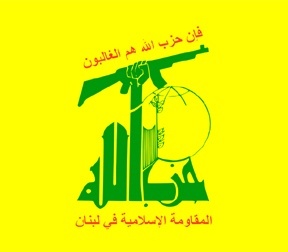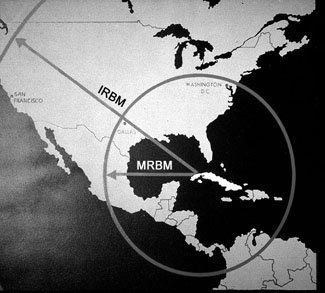FORECAST
Optimism surrounding last week’s P5 + 1 talks in Geneva could end up being well founded, as the available options on both sides of the Iranian nuclear crisis are narrowing towards a diplomatic solution.
Iran’s negotiating posture at Geneva was accommodating to the point that IAEA chief Mohamed El Baradei remarked Tehran had “shifted gears” towards cooperation. Tehran’s acceptance of immediate inspections at Qom is not in itself a breakthrough, as it would be required under Iran’s NPT obligations. The agreement in principle to ship a large part of the Iranian nuclear fuel stockpile to Russia for processing however represents real cooperation on both the Iranian and Russian fronts.
That President Obama now has some political capital in Moscow bodes well for an eventual diplomatic solution to the Iranian nuclear crisis. The unilateral pressure that the Kremlin can bring to bear on Iran is crucial in bringing about a negotiated settlement, and the processing deal being tabled at Geneva seems a likely result of this pressure. The deal takes a step forward while benefitting both Russia and Iran by catering to nationalist sentiments at home. It helps the Ahmadinejad regime avoid being perceived as bending to Western demands and affords Russia an opportunity to play an important role on the world stage.
Iran’s shift towards cooperation could also result from domestic politics. It’s possible the mullahs feel that they’ve weathered the threat posed by the green movement and can now respond to Western diplomatic advances in turn. It should be noted however that any return of large scale protests would immediately force the Ahmadinejad regime to fall back on intransigence towards the West as a way to shore up regime legitimacy.
Cooperation from the Kremlin and a stable Iranian political situation suggest that negotiations will continue to make progress. The diplomatic track is appealing to all sides due to an increasingly stark lack of viable alternative options.
On Iran’s side, the Qom revelation – though legal in the eyes of the IAEA because nuclear material had yet to be introduced – deprives the regime of a trump card. If Iran were able to continue enrichment in secret, the diplomatic process could be stalled until a nuclear test heralded Iran’s entrance into the nuclear club. Without the capacity to enrich in secret, the road to a nuclear bomb becomes a lot more costly.
A military strike by the Israeli Air Force has lost its logistic and political luster. Iran’s scattered nuclear facilities would require a sustained campaign of at least 1,400 sorties to destroy, a figure too high for the Israeli Air Force to handle itself. Politically, an attack on Iran would effectively end any hope for opposition forces in Iranian politics as the population would rally around the current leadership.
More sanctions would do much to counter the perception of President Obama’s ‘weakness’ on Iran, but it wouldn’t achieve either of Washington’s goals of avoiding a nuclear Iran or weakening the Ahmadinejad regime. Moreover, the successful passage of new sanctions in the Security Council is far from guaranteed given that China and possibly even Russia are sure to object.
If the situation remains stable on both sides, that is, President Obama can survive being labeled ‘weak’ and there is no swell of opposition forces in Iran, then there’s reason to believe that when negotiations continue on October 18th, more progress will be made.
SUMMARY OF EVENTS: September 28 – October 5, 2009
WORLD
The president of the World Bank said on Monday that America’s days as an unchallenged economic superpower might be numbered and that the dollar was likely to lose its favored position as the euro and the Chinese renminbi assume bigger roles.
Gold futures rallied above $1,000 an ounce on a weaker dollar Wednesday, a bounce in equities and higher crude-oil prices.
NORTH AMERICA
United States
U.S. intelligence agencies hit paydirt several years ago when they searched for a hidden Iranian uranium-enrichment site, spotting telltale signs of digging outside the holy city of Qom.
An Afghan immigrant to the United States accused of planning to carry out bomb attacks in New York pleaded not guilty Tuesday to the charges against him and has been ordered held without bail.
Fair will report in the next issue of the magazine that U.S. Treasury Secretary Henry Paulson — a former head of the investment bank Goldman Sachs — tried to orchestrate secretive deals in the midst of the financial crisis but got blowback from prominent investor Warren Buffett.
The United States pressed Iran to prove it has peaceful nuclear ambitions ahead of crunch talks with six world powers in Geneva on Thursday aimed at breaking a deadlock.
CENTRAL AMERICA & THE CARIBBEAN
Honduras
Honduran soldiers Monday raided a radio station in the capital Tegucigalpa aligned with Manuel Zelaya, the ousted president, and shut down its operations.
Honduran security forces Wednesday detained 55 people loyal to the country’s deposed president who had occupied the country’s agrarian reform institute to protest against his overthrow.
De facto Honduran President Roberto Micheletti on Thursday resisted demands he lift a decree that suspended civil liberties as part of a crisis triggered by the ouster of President Manuel Zelaya.
SOUTH AMERICA
Peru
Alberto Fujimori, a former president of Peru, has pleaded guilty to authorising illegal wiretaps, embezzlement and bribes of businessmen, politicians and journalists.
Venezuela
Venezuelan President Hugo Chavez and Libyan leader Moammar Gadhafi signed a declaration Monday night decrying what they call attempts by powerful Western countries to equate struggles against colonialism with terrorism.
WESTERN EUROPE
Britain
The Bank will host a seminar of all London’s major economists next Tuesday – the first time it has invited them in en masse in recent memory – in what has been construed as a sign that it fears market participants are starting to lose faith in its efforts to pump cash into the economy.
France
Russia is not meeting its obligations under the peace plan aimed at resolving the conflict between Georgia and Russia over breakaway regions of S. Ossetia and Abkhazia, the French foreign minister said Thursday.
EASTERN EUROPE
Georgia
The August 2008 war between Russia and Georgia was started by Tbilisi’s unjustified military attack on South Ossetia, concludes an independent report commissioned by the EU and published on Wednesday.
Russia
Russia’s envoy to NATO has expressed fear that Washington’s revised anti-missile plans could still pose a threat to its nuclear arsenal.
MIDDLE EAST
Saudi Arabia and Kuwait have made swift and clear denials over press reports that Israeli warplanes would be allowed to fly in their airspace during an attack on Iran.
Iran
Iran on Monday test-fired its two long-range missiles which it says could hit targets in arch-foe Israel, as the Revolutionary Guards staged war games for the second straight day.
Iran said on Tuesday it would not discuss a previously secret nuclear plant at international talks this week but Washington vowed to bring it up and demanded Tehran prove it is not developing an atomic weapon.
The UN’s chief weapons inspector, Mohamed ElBaradei, said Thursday he had seen “no credible evidence” that Iran is developing nuclear weapons, rejecting British intelligence allegations that a weapons programme has been going on for at least four years.
Iran agreed in principle Thursday to ship most of its current stockpile of enriched uranium to Russia, where it would be refined for exclusively peaceful uses, in what Western diplomats called a significant, but interim, measure to ease concerns over its nuclear program.
Iraq
The top general in Iraq is sending home 4,000 more U.S. troops by the end of October as the American military winds down the six-year war.
Israel
The Israeli government and military have retained high-powered international lawyers and set up a joint task force to fend off attempts by Palestinians and their supporters to try Israeli officials on war crimes charges abroad.
Israel/Palestinian Territory
The United Nations put off taking action on Friday on a U.N. report that accuses both Israel and Palestinian militants of war crimes in Gaza, after U.S. pressure aimed at getting the peace process back on track.
SOUTH ASIA
Afghanistan
NATO Chief Anders Fogh Rasmussen has expressed serious concern over the deepening split between the US and its Western allies on the handling of war in Afghanistan.
Violence in Afghanistan is growing and the success of the campaign against the Taliban cannot be taken for granted, General Stanley McChrystal, the head of US and Nato troops has said.
SOUTHEAST ASIA
Philippines
Two bomb attacks in one day in the southern Philippines – the first of which killed two US soldiers – could signal that Al Qaida-linked militants are launching a new offensive in the region, officials said Tuesday.
AFRICA
Guinea
At least 58 people are reported to have been killed after security forces opened fire on opposition protesters in Guinea, a human rights group has said.
Guinea troops carried out new attacks Tuesday after they killed at least 157 people, wounded more than 1,000, and raped women in a crackdown on an opposition rally the previous day, rights activists said.
Guinea’s ruling military junta called on Wednesday for a government of national unity to be formed and for an international inquiry into a bloody crackdown on opponents in the West African country earlier this week.
Guinea’s army was accused on Thursday of getting rid of many bodies from a bloody crackdown on an anti-junta rally, but the authorities stuck by their toll of 56 dead.
Somalia
Somalia’s al Shabaab rebels declared war on rival Hizbul Islam militants on Wednesday, setting up a showdown between the two main insurgent groups in an important southern port that could spread across the nation.
Fighting between rival Islamist factions on Thursday over control of a key Somali port city killed at least 12 people, most of them combatants, said witnesses and medical staff.
Yemen
A Yemeni Shi’ite rebel leader on Tuesday denied government statements that insurgents want to set up a Shi’ite state in north Yemen, and described the conflict as a fight for rights.
Zachary Fillingham is a contributor to Geopoliticalmonitor.com



